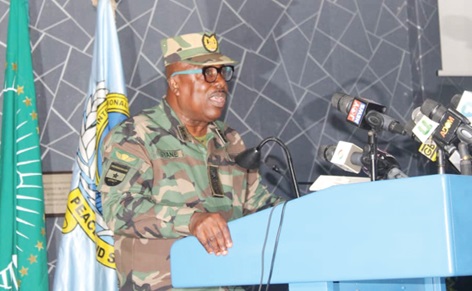
Towards peaceful election: Be circumspect in reportage - KAIPTC tells media
The Commandant of the Kofi Annan International Peacekeeping Training Centre (KAIPTC), Major General Richard Addo-Gyane, has called on the media to be circumspect in their reportage to ensure a peaceful election.
He said it was incumbent on the media to ensure they put out factual and accurate reportage in order not to stoke violence going into the December general election.
Maj. General Addo-Gyane was speaking at a multi-stakeholder dialogue on media and security, organised by the KAIPTC in collaboration with the Kingdom Concepts Consult (KCC) in Accra yesterday.
He said the media, as well as independent institutions such as the security agencies, civil society organisations (CSOs), and the Electoral Commission (EC) must show a collective effort that would sustain the peace of the country.
The Commandant called on the security agencies to remain neutral in their conduct going into the elections to engender trust and confidence, and to also perform their responsibility in ensuring that the country remained the beacon of democracy after the December polls.
The event was held on the theme: "Safeguarding peace before, during and after elections 2024: the role of the media and security actors", with a sub-theme "Prevention of election related violence: the role of media and security agencies".
The dialogue aimed at fostering a collaboration among the security agencies, the media, the EC, political parties and CSOs in performing their roles before, during and after the general election to ensure peace.
It was also attended by representatives of the EC, political parties and security agencies.
Rationale
The Director of KCC, Princess Sekyere Bih, said challenges, including access to information, where security concerns often clashed with the media’s right to report, underscored the need for a multi-stakeholder forum to find answers to some of those challenges.
![]()
“There’s also the matter of interpreting security measures, as the media might view certain actions as voter intimidation.
“Coverage of sensitive issues poses another problem, with security actors potentially seeing some reporting as inciting violence,” she stated.
Ms Bih indicated that there was the need to strike the right balance to avoid situations where excessive security measures might intimidate voters or hinder media coverage, while also preventing scenarios where unrestricted media access could compromise security or disrupt the voting process in the December polls.
“This delicate balance demands clear guidelines, mutual respect and ongoing communication between security forces and media representatives to ensure that both security needs and press freedoms are adequately addressed without compromising the democratic process,” the Director of KCC added.
Collaboration
The Head of the Communication Department of the University of Ghana, Professor Animwaa Yeboah-Banin, called for a responsive collaboration between the media and the security agencies that had critical roles to play in ensuring peace.
“Security personnel, according to research, are one of the biggest perpetrators of attacks on journalists. I want to remind us that for a partnership between the media who want to inform the public to ensure peace and the security agencies who want to protect us to ensure peace, we are not adversaries,” she stated.
Prof. Yeboah-Banin urged the media to be at the front of its responsibility and curb the menace of misinformation and disinformation that was championed, especially, by political parties and actors, adding that “research has shown that the public is now consuming misinformation which is very dire to ensure peaceful elections”.
She reiterated that the media must safeguard the country’s peace before, during and after the election by putting out information which promoted trust in the election process, to diffuse politicians’ actions that discredited the electoral process.
